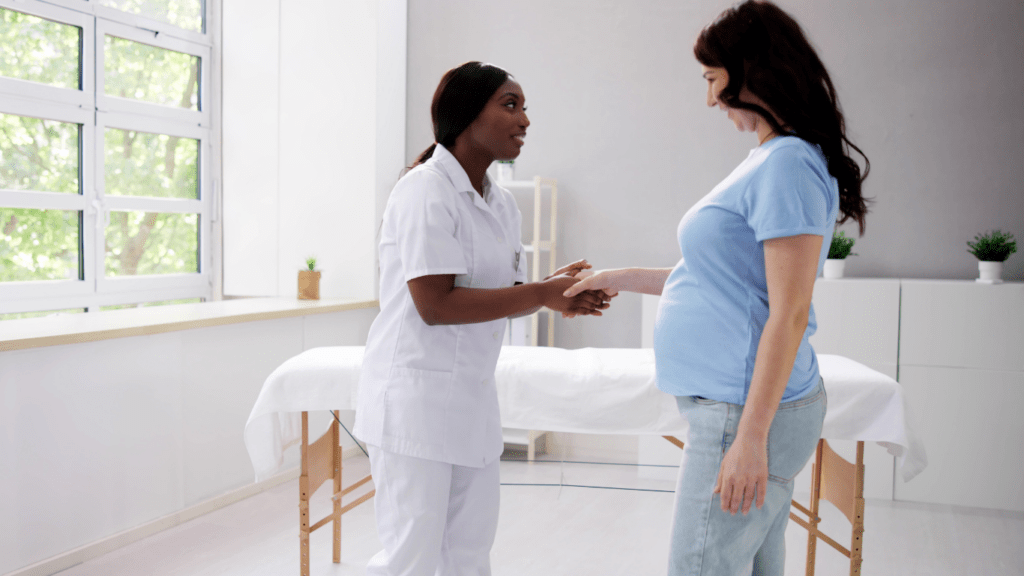As a women’s health advocate, staying informed about the latest research and advice is crucial for making empowered decisions about our well-being. In this fast-paced world where information is constantly evolving, it’s essential to stay ahead of the curve when it comes to our health.
From groundbreaking studies to expert recommendations, keeping up with the latest in women’s health can lead to a healthier and happier life. In this article, I’ll delve into the most recent research findings and expert advice in the realm of women’s health.
We’ll explore topics ranging from preventive care to mental wellness, providing valuable insights to help you prioritize your health. By staying informed and proactive, we can take charge of our well-being and make informed choices that support our overall health and vitality.
Women’s Health: Latest Research and Advice
In discussing women’s health, my aim is to present the most current research and expert advice to empower individuals in making informed choices about their well-being. Staying updated on the latest findings is crucial for leading a healthier and more fulfilling life.
My exploration will focus on recent studies and recommendations covering a range of topics, including preventive care and mental wellness. The insights provided here are intended to support proactive health management and facilitate informed decision-making in women’s health.
Importance of Regular Checkups
Regular checkups are crucial for maintaining good health and well-being. By staying informed about the latest research and expert advice in women’s health, I empower myself to make informed decisions about my well-being.
These checkups help me stay proactive and address any health concerns promptly, ensuring a healthier and happier life.
- Preventive Screenings: play a vital role in early detection and treatment of various health conditions.
- By Undergoing Regular Screenings: I can detect potential issues before they escalate, leading to better health outcomes.
- Screening Tests: Can help identify risks for conditions like breast cancer, cervical cancer, and osteoporosis, enabling timely intervention.
- Early Detection: through screenings can increase treatment options and improve the chances of successful outcomes.
Mental Health and Well-being
Incorporating self-care practices is crucial for maintaining optimal mental health and overall well-being. Engaging in activities like mindfulness meditation, regular exercise, and adequate sleep can significantly impact one’s mental state.
These habits can help reduce stress levels and improve emotional resilience, fostering a positive outlook on life. Establishing a strong support system is essential for bolstering mental health. Surrounding yourself with friends, family, or professional counselors can provide valuable emotional support during challenging times.
Open communication and seeking help when needed are signs of strength that can contribute to better mental well-being. Maintaining a healthy work-life balance is key to avoiding burnout and preventing mental health issues.
Setting boundaries, prioritizing tasks, and taking breaks are effective strategies to ensure a harmonious equilibrium between professional responsibilities and personal life. By acknowledging the importance of self-care and relaxation, individuals can enhance their mental health and overall quality of life.
Regular self-assessment and reflection on one’s emotions and thoughts can aid in the early detection of mental health concerns. Being attuned to changes in mood, behavior, or cognitive patterns allows individuals to seek timely assistance and interventions when necessary.
Seeking professional guidance from therapists or mental health experts is crucial for addressing mental health challenges effectively. Engaging in hobbies and activities that bring joy and fulfillment can have a positive impact on mental health.
Pursuing interests such as art, music, volunteering, or sports can boost mood and cultivate a sense of purpose and accomplishment. These activities serve as outlets for expression and creativity, promoting mental well-being and emotional balance.
Prioritizing mental health and well-being is essential for leading a fulfilling and balanced life. By adopting healthy lifestyle practices, seeking support when needed, and staying attuned to mental and emotional changes, individuals can nurture their psychological resilience and enhance their overall quality of life.
Nutrition and Exercise
Exploring the connection between nutrition and exercise is essential for maintaining overall well-being. Proper nutrition provides the fuel our bodies need to function optimally, while regular exercise keeps us physically active and mentally alert.
Balanced Diet
When it comes to nutrition, a balanced diet is key. Including a variety of foods rich in essential nutrients such as fruits, vegetables, whole grains, lean proteins, and healthy fats is crucial for supporting our body’s functions.
For example, incorporating foods like spinach, nuts, salmon, and avocado can provide the necessary vitamins and minerals for energy, heart health, and brain function.
Importance of Hydration
Staying hydrated is equally vital for women’s health. Drinking an adequate amount of water throughout the day helps maintain proper digestion, skin health, and overall body temperature regulation.
It’s recommended to aim for about 8-10 cups of water daily, adjusting based on individual needs and activity levels.
Exercise Routine
Incorporating regular physical activity into our routines is key to promoting cardiovascular health, maintaining a healthy weight, and boosting overall mood. Engaging in activities like brisk walking, cycling, yoga, or strength training can offer various benefits.
For instance, a combination of cardio and strength training exercises can improve heart health, increase muscle tone, and enhance flexibility.
Benefits of Regular Exercise
Regular exercise not only contributes to physical well-being but also plays a significant role in mental health. Physical activity releases endorphins, also known as “feel-good” hormones, which can help reduce stress, anxiety, and symptoms of depression.
Moreover, it can improve sleep quality, cognitive function, and boost self-esteem.
Consultation with a Healthcare Provider
Before starting any new exercise regimen or making significant changes to your diet, it’s advisable to consult your healthcare provider, especially if you have any underlying health conditions. They can offer personalized guidance based on your individual health needs and goals to ensure a safe and effective approach to nutrition and exercise.
By prioritizing a balanced diet and regular physical activity, women can enhance their overall well-being, boost energy levels, and support long-term health goals. Combining nutritious eating habits with a consistent exercise routine can lead to a healthier and more fulfilling lifestyle.


